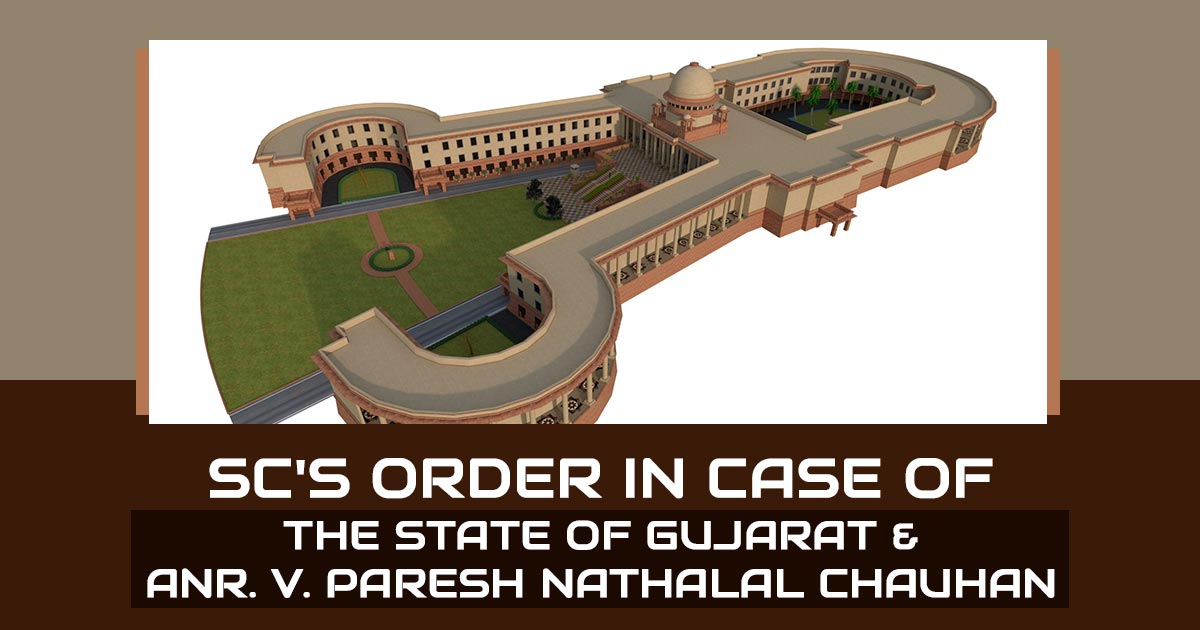
The observations of the Gujarat High Court in an interim order have been removed by the Supreme Court on March 12 that statutory protection of the good faith clause u/s 157 of the Goods and Services Tax Act may not be available to the GST officers who operated a search operation in the instant case.
A bench of Justices P.S. Narasimha and Aravind Kumar expressed that the impugned observations incurred via the High Court were, in nature, “advance rulings” and communicated a tentative opinion. Figuring the same, the Court expressed that the Gujarat High Court stated the same opinion without even initiating the legal proceedings.
“We do not doubt that the High Court was aware of the principles controlling good faith clauses and thus couched its dissatisfaction by expressing that such officials “may not” be protected or that it “may be difficult” to accept the opinion of good faith. We believe that these observations are like advance rulings. It is due to that even before the initiation of a suit, prosecution or legal proceeding, the High Court communicated a tentative view. If such observations remain, they will affect the integrity and independence of that adjudication, compromising the prosecution and the defence equally.”
The matter’s brief background is that the High Court is in seisin of a writ petition furnished via the respondent asking for protection from arrest and coercive action under the GST act. The High Court condemned the GST search party for extending their stay in the residence of the respondent and defined it as “unauthorized and illegal”. The High Court Against this backdrop, made the subsequent observation:
“28. Lastly, the court may sound a word of caution to the authorities practising powers under the GST Acts. Sub-section (2) of section 157 of the GST Acts articulates that no suit, prosecution or other legal proceedings will counted against any officer appointed or authorized under the Act for anything that is accomplished or intended to be accomplished in good faith under the Act or the rules incurred thereunder. A measure such as the current one which is not contemplated under any legal provision and which violates the fundamental rights of citizens under article 21 of the Constitution of India may not be shielded under the same section.”
The state dissatisfied with the same approached the Supreme Court in a plea. The court was notified that the respondent was not curious in the proceeding against the officers.
Against suits, prosecution, or other legal proceedings against officials practising statutory power, good faith clauses in statutes furnish immunity. However, the scope of this immunity is restricted and contained to acts accomplished honestly and in furtherance of accomplishing the statutory objective.
The Court witnessed that this clause of good faith is a defence, and if successfully pleaded, against any legal action it can secure the officials. Therefore, if any official invokes this clause in a legal proceeding against him, it is then for the Court to scrutinize whether the defence is available or not. This scrutiny, inquiry, or examination is accomplished just in a proceeding against the statutory functionary, the Court underlined before adding:
“It is in the aforesaid referred context that we have reviewed the observations incurred via the High Court in Paragraph 28 extracted hereinabove. The High Court was not conducting a suit, prosecution, or other legal proceeding against a legal functionary.”
The Supreme Court permitted the petition by specifying that the legal functionary is equally qualified to go with the defence of good faith.